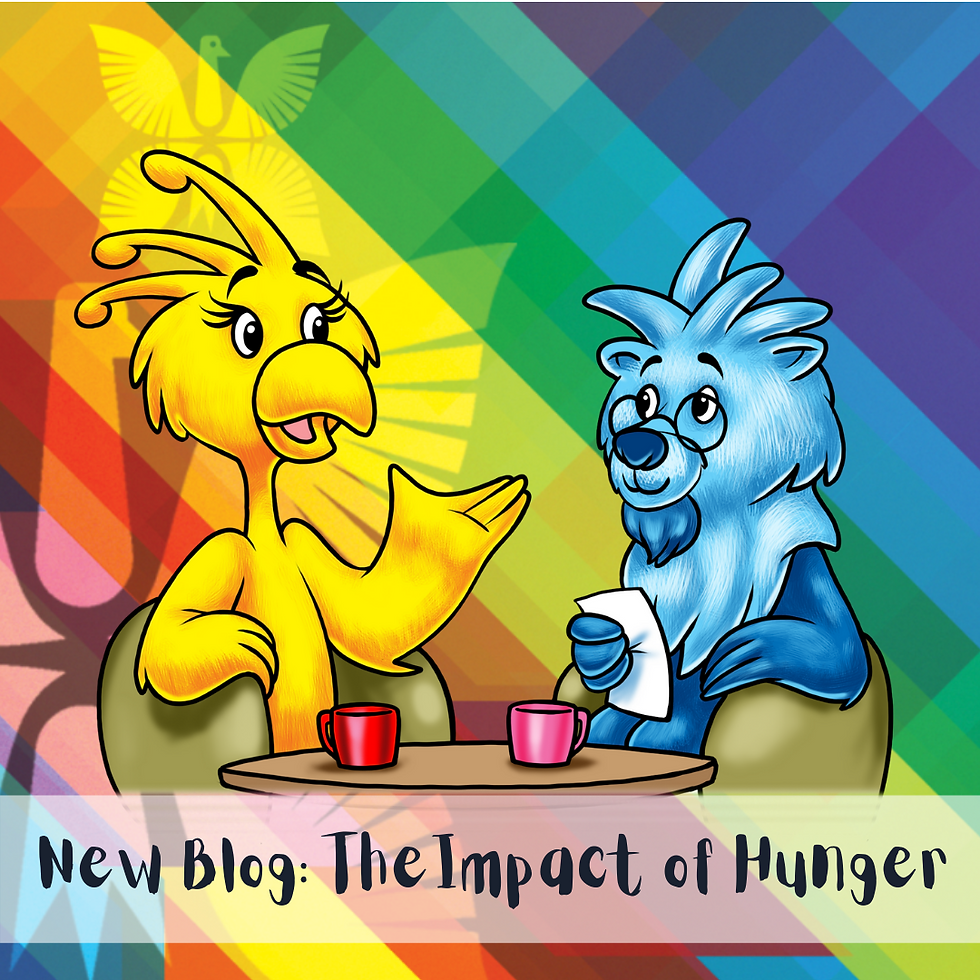#KidsCovidMH - The Trauma Talk
- Phoenix Education

- May 12, 2020
- 4 min read
This week, Sarah was sadly unable to join our #kidscovidmh chat as she mourned the loss of her Uncle Andrew today and as a result I, (Phoenix’s marketing director) was left to fly solo.
Although I am largely behind the scenes at Phoenix Group, I am particularly interested and committed to supporting children through adverse childhood experiences. Much of this ambition comes from my own experiences of trauma in childhood. When I look back I feel so incredibly lucky to have made it out the other side and, when I think about how close I came to falling short of the shore, I realise how important it is that we improve the understanding of trauma and the support mechanisms that are available to them.

When I was 15 (which was 20 years ago), I was involved in a coach crash whilst I was on holiday with the air cadets. We were hit by two 38 tonne lorries and three of my friends were killed. The accident received mass media coverage. My friends funerals were attended by thousands of strangers and the process for grieving seemed to go on and on and on - shaped by court cases, public ceremonies, illnesses and suicides that only came to an end about a decade ago.
I was passed around from bereavement counsellor to bereavement counsellor. I was given citalopram. I was told at least 100 times that I had survivor’s guilt. I was told 100 times more that I was brave. I was told I didn’t have PTSD because I didn’t have enough flashbacks or nightmares so it seemed that time would do it’s thing and heal me. My teachers told me that I was doing well just to be at school and that I could have special consideration for my exams. My parents didn’t know what to do so painted my bedroom, cooked me my favourite dinners and sort of hoped for the best.
12 years later, I was sectioned. I was diagnosed with OCD and an incredible lady drew a flow chart of my brain and how it had responded to the accident. I had been doing things to try and make my friends come home for years by that point - a cycle of hope, striving and then failure. I ran a marathon because I thought they would be at the finishing line. I aced my degree because I couldn’t imagine they would miss my graduation. As I became more unwell, I would buy cinema tickets to films I thought they might watch. I got on trains that I knew that used to use often and every time I didn’t find them I thought it was because they hated me - because they blamed me for letting them die and would never forgive me. I was confident they would ruin my life by harming people I cared about, by making everything go wrong and by forcing me to live with the unbearable pain I carried.
The psychiatrist said that because my PTSD (refusal to accept the event) had gone unnoticed and unattended to, it had morphed into an OCD presentation - challenging the concept of death with magical thinking and control - and do you know what, as she said it to me, it made total sense. It gave me complete clarity and that insight has literally saved my life.
It has saved my life in the sense that it has allowed me to live. I know when I get an ‘OCD’ thought and I have developed a whole host of strategies that ensure I don’t act upon it.
It made me realise that this was trauma - not bereavement, not sadness, not hate or regret or weakness. It gave me a narrative that helped me explain my thinking to others.
Today, coincidences can make me feel on edge - are they a sign that I should still be looking for my friends? Today rather than sparking weeks and weeks of obsessive searching and emotional turmoil, I can identify that thought as OCD and I know that a sleep, an hour’s colouring, a chat with a friend or a walk in the park, clears it.
I feel sad that it took me 12 years to get that insight. It makes me sad to think of the years of my life that I have lost and the pain and distress I have caused the family that stood in the wings wondering if their daughter would ever come back but most I feel sad for other children that might experience the same, that might not be as lucky and lose their choice to live because they are unsupported in their trauma response.
We have recently spoken to a number of adults that experienced trauma in childhood and although each experience is incredibly different, there are common themes in how they responded and what they needed from the important adults around them.
Our plan is to create a framework resource that allows us to better understand the response children have to trauma, regardless of what that experience is, and provide the support, care and resources they need in order to process, understand, regulate and ultimately learn to live their life to the fullest with the scars, preferences and needs a traumatic experience leaves them with.
We will continue to explore how we understand and support trauma in the coming weeks and will be honoured and humbled to shape that with any experiences or insights individuals within our community share with us.
Our more typical #kidscovidmh round up blog will follow shortly for those that were unable to attend tonight’s conversation and wish to tap into the wealth of knowledge and experience that was shared by the individuals that were able to join us and kind enough to contribute.




Comments